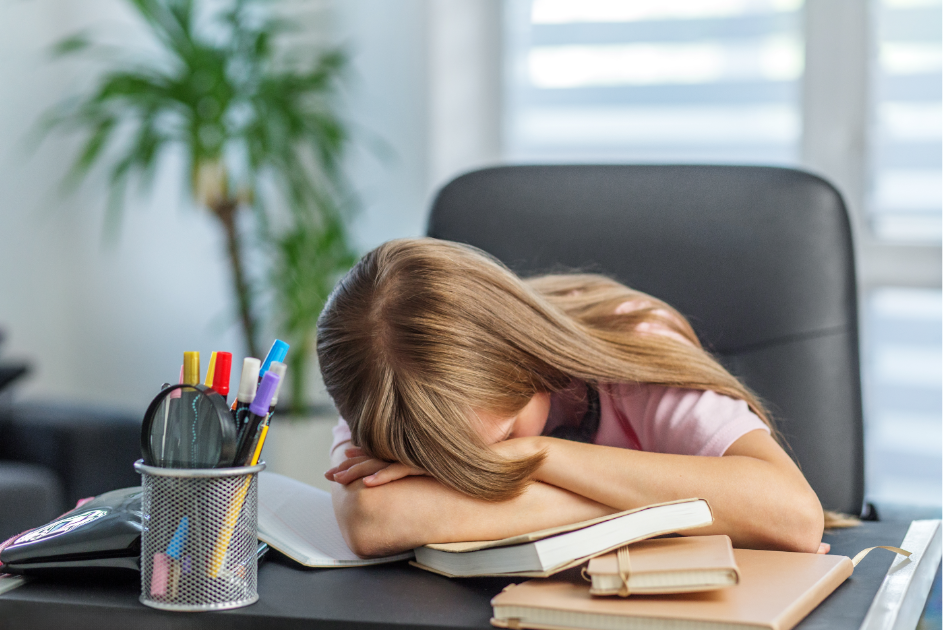Mom has epic response for people who say she's 'spoiling' her 12-year-old by cleaning her room
“It costs you nothing, and it creates this ripple effect of kindness."
"It costs you nothing, and it creates this ripple effect of kindness."
There's an extremely niche but surprisingly popular corner of the Internet devoted to grime and muck being scrubbed away. Yes, really. People find it to oh-so satisfying, and it's known as #CleanTok. It's mostly wholesome, cathartic fun, but every once in a while, controversy comes in. For a mom named Audrey (who clearly has a passion for cleaning hacks, given her TikTok handle of @organizedchaos4), that moment came in October 2024 after she filmed herself doing a deep clean of her then 12-year-old daughter’s room. Several people chimed in to accuse her of spoiling her kid, more or less.
Granted, Audrey admitted that she had posted the video “hoping that the trolls would get those thumbs a-movin’.” So when they did indeed come after her, she was ready. “I surprised my daughter by cleaning her room for her. She's been getting herself up for 6 a.m. practices, she gets herself to school, she's out of the house before the rest of us have even woken up,” Audrey says in the clip.
“Keep in mind she's 12. In return for all that she's been doing, I thought it would be a nice treat if I just did a quick speed clean of her room. It was no big deal.”
Audrey goes on to say that the point of her follow-up video was to reiterate the importance of “extending grace.”
@organizedchaos4 TikTok · Organized Chaos | Audrey
"That's what I did for my daughter. She had fallen behind on her room and I helped her,” she says. “It costs you nothing, and it creates this ripple effect of kindness. We all have setbacks, we all have failures, we all make mistakes and if you say you don't you're lying. By extending grace we are spreading kindness, we are spreading compassion. If you can't extend grace to your own children then there's no way you're going to extend it to anyone else in the world and that's a scary world to live in.”
Audrey then argues that being kind to others often makes it “easier” to be kind to ourselves, which is “vital for our mental health.”
She then concludes, “So if you watched the video yesterday or you're watching this one today and you're thinking negative thoughts, ask yourself, ‘Am I quick to judge, be resentful, be negative or am I quick to extend grace?' or ask yourself, 'Have I ever stumbled and wish grace had been extended to me?’”

Down in the comments, it's clear Audrey is certainly not alone in her thinking.
“Kindness costs nothing and provides everything,” one person wrote.
“This will only inspire your daughter to keep working hard and give back when she has a chance to, and know she can rely on you when she struggles,” added another.
Several other moms even chimed in about doing something similar for their kids.
“Exactly I did the same thing for my 23-year-old daughter who works full-time and is a full-time college student. She’s 100% independent. I just want to take some off stress off her plate,” one mom shared
Another said, “I do this for my daughter still, and it's her house.”
As with all things in parenting, balance is key. Of course we don’t want to instill laziness, but at the same time, kids can’t be expected to overachieve in all areas at all times. Adults can’t even manage this without a little help. It sounds like this is truly a case of a good kid acting as responsibly as humanly possible, and a mom just wanting to help out where she can, all why'll teaching her the world can be a safe place. Hard to see anything wrong with that!
Cleary, none of the negative comments have dissuaded Audrey from taking care of her daughter this way. In fact, in one video, she mentions that, due to her love language being "acts of service," she actually enjoys doing it.
@organizedchaos4 For everyone in yesterday’s video saying “if she can’t keep it clean she doesn’t deserve it” let’s apply that logic to you, as well. If you’ve ever had a semi-messy home, you don’t deserve it. 😉 See the problem with that logic? We all allow our homes to get messy once in a while. No shame in it. Welcome help if it’s offered. ❤️ We’re all about grace and generational wealth over here. 👏🏻 #cleaning #clean #cleaningmotivation #kids #cleanwithme #organization #organize
And for those of us adults without a parent to help clean, Audrey has some pretty great organizational tips on her TikTok for you to peruse.
This article originally appeared two years ago. It has been updated.

